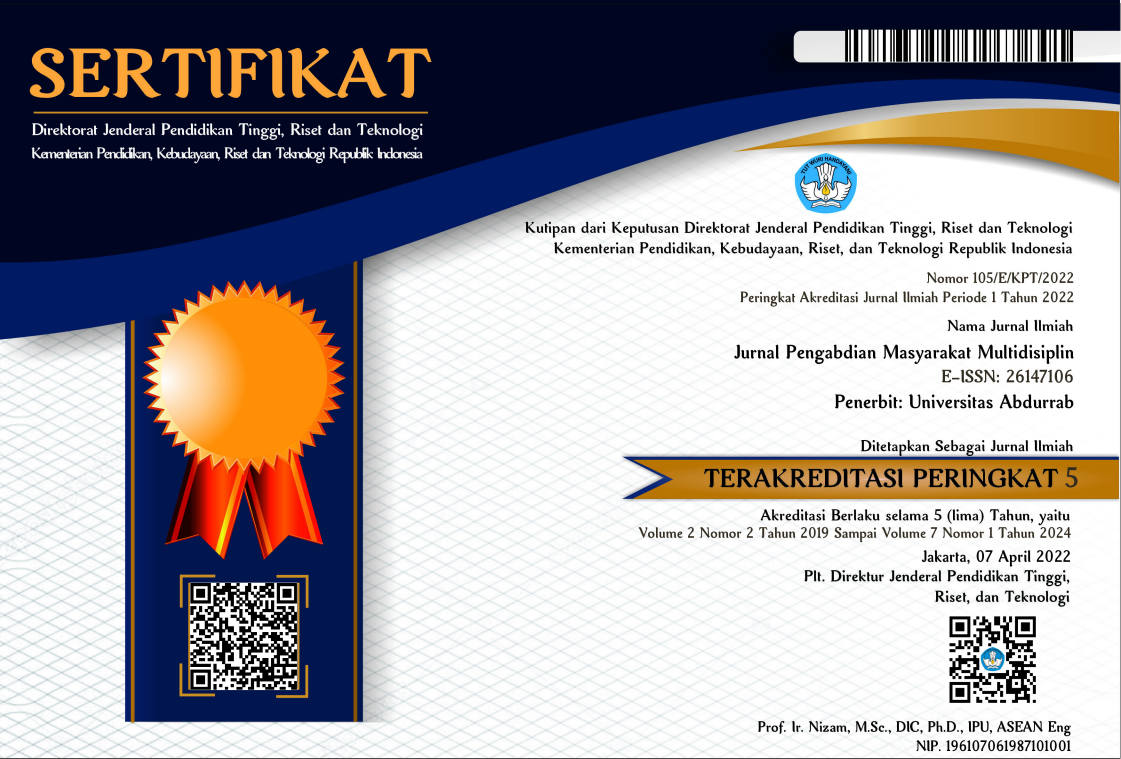PENGUATAN KADER PENDAMPING SOSIAL DALAM MENURUNKAN KEJADIAN LOSS TO FOLLOW-UP TERAPI ANTIRETROVIRAL PADA ORANG DENGAN HIV AIDS
DOI:
https://doi.org/10.36341/jpm.v6i2.2993Keywords:
social cadre, loss to follow-up, antiretroviral therapy, PLWHAAbstract
Antiretroviral (ARV) therapy has become the standard of minimal care for people living with HIV. The length of treatment has an impact on the adherence toward ARV consumption. Non-adherence to ARV treatment will result in loss to follow-up and can worsen the condition. Social cadres are active in assisting the government in preventing loss to follow-up. The obstacles they face are the lack of optimal monitoring of ARV consumption and knowledge about ARV. This community service activity aimed to strengthening and optimizing the role of PLWHA social cadres. This activity consists of three stages: (1) focus group discussions with PLWHA mentoring cadres on challenges and problem-solving strategies, (2) drafting guidelines for monitoring ARV consumption for PLWHA that social cadres can use, and (3) training for PLWHA mentoring cadres on mastery of ARV concepts and loss to follow-up prevention management. The activity results show that there is a solution to the problems faced by social cadres in the form of a strategy for monitoring ARV consumption and increasing knowledge of PLWHA about ARV therapy and efforts to reduce the incidence of loss to follow-up. It is hoped that this activity will continue to evaluate the success of this problem-solving strategy and that social cadres can play an active role in reducing the incidence of loss to follow-up.
Downloads
Downloads
Published
How to Cite
Issue
Section
License
1. Copyright of all journal manuscripts is held by the Jurnal Pengabdian Masyarakat Multidisiplin.Formal legal provisions to access digital articles of electronic journal are subject to the provision of the Creative
2. Commons Attribution-ShareAlike license (CC BY-NC-SA), which means that Jurnal Pengabdian Masyarakat Multidisiplin is rightful to keep, transfer media/format, manage in the form of databases, maintain, and
3. publish articles.Published manuscripts both printed and electronic are open access for educational, research, and library purposes. Additionally, the editorial board is not responsible for any violations of copyright law.
licensed under a Creative Commons Attribution-ShareAlike 4.0 International License.







